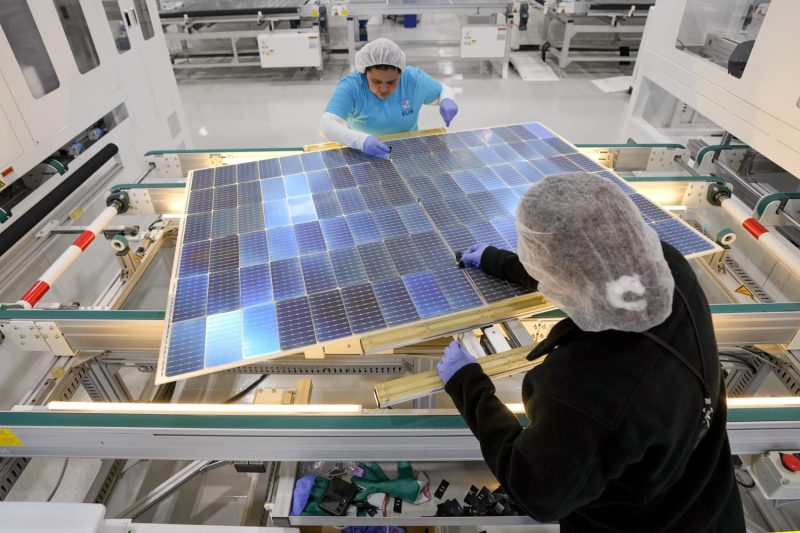The U.S. Labor Market: Embracing Skilled Labor as White-Collar Hiring Slows
Analyzing the Shift in the U.S. Job Market
As the U.S. economy continues to evolve and adapt to the demands of the modern world, the landscape of the labor market undergoes significant changes. One of the most notable trends in recent years is the increasing emphasis on skilled labor, particularly in contrast to the slowdown in white-collar hiring. This shift has far-reaching implications for both job seekers and employers across various industries.
The Rise of Skilled Labor
The growing emphasis on skilled labor can be attributed to several factors shaping the contemporary job market. Technological advancements have revolutionized many industries, creating a demand for workers with specialized skills and expertise in areas such as data analysis, digital marketing, coding, and cybersecurity. As automation and artificial intelligence become more prevalent, there is a greater need for employees who can navigate and innovate within these technological landscapes.
At the same time, the aging workforce and the retirement of baby boomers have led to a shortage of skilled workers in certain fields, such as healthcare, engineering, and skilled trades. Employers are increasingly recognizing the value of investing in workforce development and training programs to upskill their employees and fill these critical roles. This focus on skilled labor is not only driven by necessity but also by the recognition of the long-term benefits of having a highly skilled and adaptable workforce.
Challenges of White-Collar Hiring
In contrast, the traditional model of white-collar hiring, which typically involves recruiting employees with college degrees for professional or managerial positions, is experiencing a slowdown. Several factors contribute to this trend, including the changing nature of work and the evolving expectations of both employers and employees.
Automation and outsourcing have led to the displacement of many routine white-collar jobs, such as administrative tasks, data entry, and customer service roles. Additionally, the gig economy and the rise of remote work have reshaped the way companies structure their workforce, leading to a more diverse and flexible approach to talent acquisition.
Furthermore, the COVID-19 pandemic has accelerated the shift towards remote work and digital transformation, prompting companies to rethink their hiring practices and adapt to the new realities of a rapidly changing world. As a result, many organizations are reevaluating the need for traditional white-collar roles and exploring alternative staffing models that emphasize skills and performance over credentials and titles.
The Changing Dynamics of the Labor Market
The shift towards skilled labor and the slowdown in white-collar hiring are indicative of larger trends reshaping the labor market. Employers are increasingly focused on identifying and developing talent with the skills and competencies needed to succeed in a rapidly evolving business environment. This emphasis on skills-based hiring and workforce development reflects a fundamental shift towards a more agile, adaptable, and resilient workforce.
Job seekers, in turn, are navigating this changing landscape by investing in continuous learning and skills development to remain competitive and marketable in their respective fields. The traditional dichotomy between white-collar and blue-collar jobs is becoming increasingly blurred, as the demand for hybrid roles that combine technical expertise with soft skills continues to grow.
Ultimately, the U.S. labor market is undergoing a transformation that presents both challenges and opportunities for organizations and individuals alike. Embracing the shift towards skilled labor and adapting to the evolving dynamics of the job market will be crucial for staying ahead in an increasingly competitive and rapidly changing economic landscape. By investing in talent development, fostering a culture of lifelong learning, and embracing innovation, companies can position themselves for success in the new world of work.
